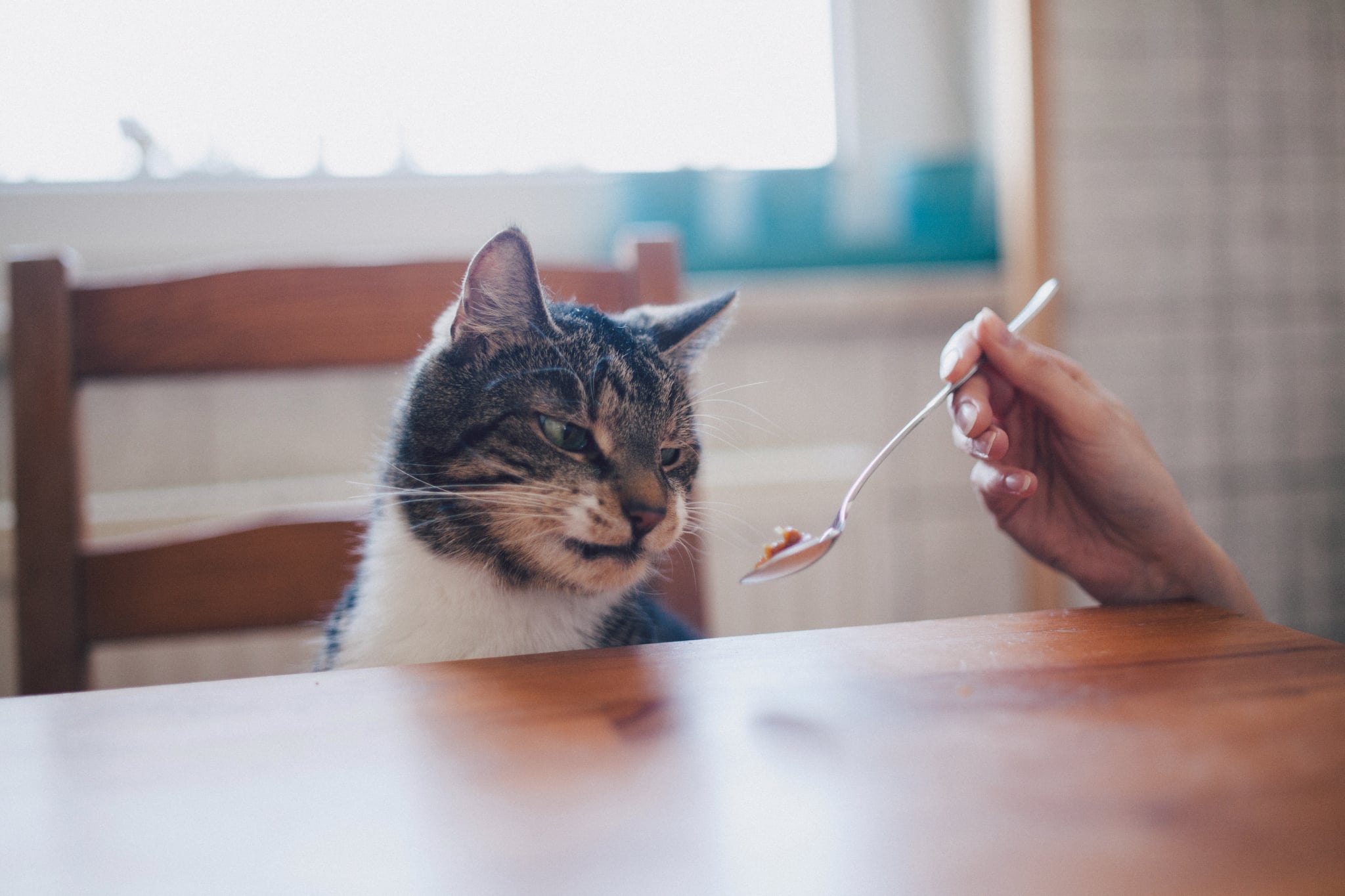
Yes, Your Cat's Behavior Will Most Likely Change With Age — 2 Vets Explain Why
by Hedy PhillipsOne of my cats just turned 9 years old, and I can't help but notice that he seems to have a shorter temper than he used to. He has less patience for me trying to rub his belly all the time and swats me when I get too close if he's in a mood. We've gone through some situational changes at home — I'm home 24/7 now rather than being in an office for work — so I know that's contributed to part of the problem. However, I checked with two vets to get an opinion on whether or not cats' behaviors do, in fact, change as they get older. Here's what they had to say.
Do Cats' Behaviors Change as They Age?
Just like humans, cats behaviors also change as they get older. "There are big changes that happen between kittenhood and adulthood as cats grow through developmental milestones, but also changes for senior cats as they go through the normal aging process," said Dr. Ragen T.S. McGowan, behavior research scientist at Purina. The behavior changes can often be tied to further issues, beyond just aging. Dr. Shelly Zacharias, DVM, MS, VPM, BCMAS, and vice president of medical affairs for Gallant, told POPSUGAR that as cats age, they can experience pain related to issues like arthritis, which can make them act out more. Older cats are also more prone to dementia and anxiety, which can trigger different behaviors.
Is It Possible For Cats to Become More Temperamental as They Get Older?
If your cat has become temperamental in their old age, Dr. Zacharias stressed the importance of contacting your veterinarian. It's especially important if the behavior change is drastic. It could be tied to an underlying condition or pain somewhere, like with arthritis. Also, according to Dr. McGowan, "Cats who are suffering from cognitive decline, and thus experiencing increased anxiety, can show a tendency to react aggressively."
If You Find That Your Cat Is Becoming More Grouchy, Is There Anything You Can Do to Manage That?
Your first step in helping a grouchy cat is to check with your vet to make sure nothing is wrong with them, especially if your cat is senior age. As your cat ages, they require more care and attention, so make sure you're always keeping watch of their behaviors and mannerisms so you can spot if something changes. If your cat has become more aggressive for seemingly no reason, one common reason, according to Dr. Zacharias, is hyperthyroidism. "This is due to an overproduction of the thyroid hormone and is easily diagnosed with a blood test, and there are several ways to treat this disorder," she told POPSUGAR. "The signs of a cat with hyperthyroidism may be one of many. These include weight loss, possibly vomiting and/or diarrhea, changes in urination, and often changes in behavior or attitude."
What Are Ways You Can Keep Them Calm?
After you've ruled out any underlying causes of a different attitude in your cat, the best thing you can do is provide a soothing home situation for them. Make sure they have a comfortable place to rest and hang out. You can also use lavender-scented essence around your home to encourage calm. Just don't put it on your cat. Also read their signals. If they don't seem to like something that they used to, don't force them into it. If you used to always scratch your cat's belly and now they don't want you to, stop doing it. There's no need to cause undue stress just because you want to give them belly rubs. Maybe try ear scratchies instead.